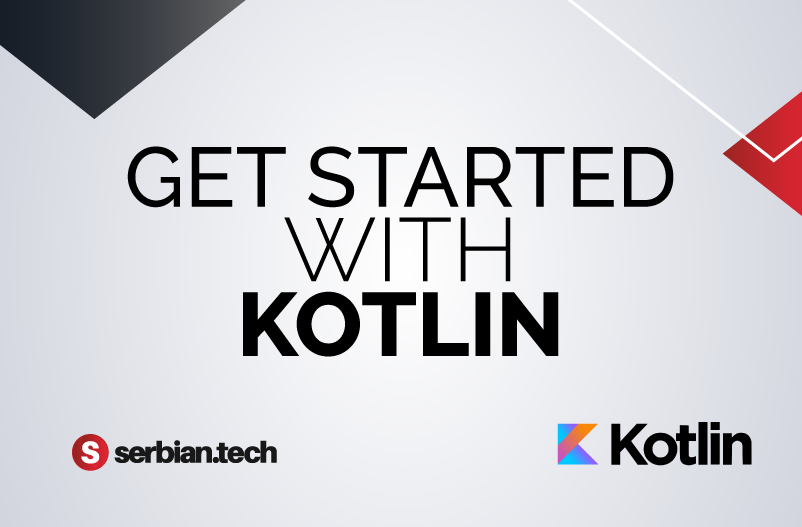Kotlin is a universal open-source programming language developed by the JetBrains company.
It is concise, secure, pragmatic, and compatible with Java code. It can be used wherever Java is used, such as server-side application development, Android applications, and more. It works great with all existing Java libraries and frameworks and has the same performance as Java. The language is created to overcome the shortcomings of the Java programming language and successfully justified the expectations of many Java programmers. It was named after the island of Kotlin near St. Petersburg.
Kotlin brings a lot of new functionalities and improvements, and as its creators say, it has picked up the best features of some already mature languages. He is already widely accepted among developers, and the fact is that he has joined programming languages such as Swift, Go, Scala, Rust.
Setting up Kotlin
It can be set up and run in several ways. It is possible to install the Kotlin compiler and run Kotlin programs from the command line or install and configure Kotlin in an IDE, such as IntelliJ or Eclipse.
Installing a standalone compiler
Go to Github and from the Kotlin page download Kotlin’s compiler as a zip file from the Assets section of the Github edition page. Unzip the downloaded kotlin-compiler-x.x.x.zip file and save the unzipped folder where you have access to write. Add the path-to-unpacked-folder/bin to your variable PATH. Confirm the installation by typing the kotlinc in the command line.
Run your first Kotlin program from the command line:
fun main(args: Array<String>) {
println("Hello, World!")
}
Save the file and type the following commands to compile and run the program:
$ kotlinc hello.kt
$ kotlin HelloKt
Hello, World
Setting Kotlin in IntelliJ IDEA
Install the latest version of IntelliJ IDEA. Kotlin comes bundled with the latest versions of IntelliJ. You will not need to install any plugin to run the Kotlin program. Then create a new project by selecting “Create New Project” on the welcome screen or go to File → New → Project. Specify the name and location of the project and select the Java version (1.6+) in the Project SDK. Once all the details have been entered, click Finish to create the project. After that, the Kotlin file is created in the following way, right-click on the src folder → New → Kotlin File/Class. You will be prompted to specify a file name. Call it HelloWorld. Now write a simple hello world program into the new file we created. Add the following main() function to the HelloWorld.kt file:
fun main(args: Array<String>) {
println("Hello, World!")
}
Finally, you can start the program by clicking on the Kotlin icon that appears next to the main() method.
You can also start the program by right-clicking on the HelloWorld.kt file and selecting “HelloWorldKt.”
Setting up Kotlin in Eclipse
Download the installer from the Eclipse Downloads page and install the Eclipse IDE for Java Developers. Once Eclipse is installed, Install the Kotlin plugin from the Eclipse Marketplace: Go to Help → Eclipse Marketplace and look for Kotlin. Click install to install the plugin. You will need to restart the Eclipse when the installation is complete. To check if the plug-in installation has switched to Kotlin’s perspective in the eclipse, go to Window → Perspective → Open Perspective → Other. A window will open showing Kotlin as a new perspective. Select Kotlin and click Open to open the Kotlin perspective. Then, make a new project. Select File → New → Kotlin Project. Enter a name for the project and click Finish. Now it is time to create the Kotlin file in the src folder. Right-click on the src folder → New → Kotlin File. Add the following code to HelloWorld.kt:
fun main(args: Array<String>) {
println("Hello, World!")
}
Then, right-click anywhere in the source file and click Run As → Kotlin Application to launch the application.
Properties of Kotlin programming language
Here we will describe in more detail the main features that characterize Kotlin’s programming language.
Static typed
Kotlin is a statically typed programming language. This means that the type of each variable and expression is known at compile time. The advantage of static typing is that the compiler can validate method calls and access properties on objects during compile time itself and prevent a multitude of trivial errors that would otherwise occur during execution.
Although Kotlin is a statically typed language, it does not require you to explicitly specify the type of each variable you declare. Kotlin can usually deduce the type of a variable from the initializer expression or the surrounding context. This is called type inference.
Concise
Kotlin is concise. It drastically reduces the amount of basic code written in other OOP languages such as Java.
It provides rich idioms for performing common tasks. For example, you can create a POJO class using getter, setter, equals(), hashCode(), and toString() methods in a single line of code.
Safe
Kotlin is safe. It avoids the scariest and most annoying NullPointerExceptions by supporting nullability as part of its type system. Every variable in Kotlin is not null by default. To allow a variable to contain a null value, you must explicitly declare it nullable, that is, assign a null value to the variable.
Kotlin checks this during compilation, to avoid possible problems with exceptions. This feature can save the developer a lot of time during debugging.
Easy to learn
The basic syntax is very similar to Java. If you have little experience with Java or any other OOP language, you will be able to understand Kotlin in a few hours.
Functional and object-oriented possibilities
Kotlin is an object-oriented language. It is not a purely functional language, but like many modern languages, it uses many concepts of functional programming and provides great support for functional programming.
Compatibility with Java
You can easily access Java code from Kotlin and vice versa. And use Kotlin and Java in the same project. This makes it easy to adopt Kotlin into your existing Java projects.
Creating applications for server-side, Android, browser, and desktop
You can use Koltin to build applications for a wide range of platforms, including server-side, Android, browser, and desktop.
- Android has official support for Kotlin.
- On the server-side, you can use Kotlin with the Spring framework that has added full support for Kotlin in Spring version 5.
- Kotlin can also be compiled into JavaScript and machine code.
Free and open-source
The Kotlin programming language, including the compiler, libraries, and all tools, is completely free and open-source. It is available under the Apache 2 license, and the entire project is hosted on Github.
Where to go for more information?
You can see the complete documentation and important information on Kotlin’s official website. If you liked this topic, it is important to know that SerbianTech through our official Google community Google Developer Group Belgrade, will soon organize an Android Study Jams event. Follow us and be among the first to find out all about this event. Study with world-class professionals and secure a successful career. We are waiting for you!




Recent Comments